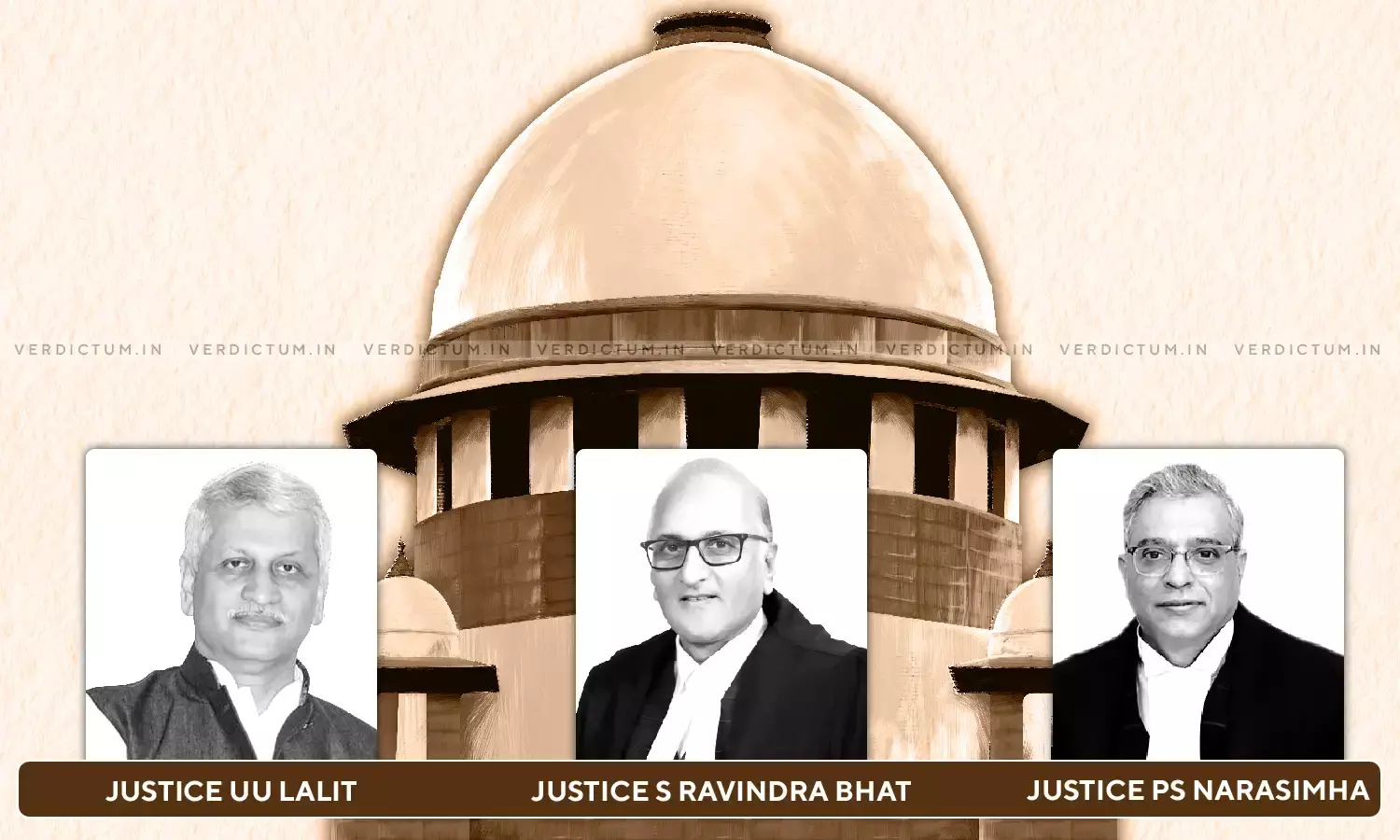Child From Second Marriage Legitimate Under HMA, Cannot Be Denied Compassionate Appointment - SC
A three-judge bench of the Supreme Court comprising of Justice U.U. Lalit, Justice S Ravindra Bhat, and Justice P.S. Narasimha has held that once Section 16 of the Hindu Marriage Act regards a child born from a marriage entered into while the earlier marriage is subsisting to be legitimate, it would violate Article 14 if the policy or rule excludes such a child from seeking the benefit of compassionate appointment.
In this case, Jagdish Harijan was an employee of the Indian Railways and had two wives, Appellant No.2, Gayatri Devi, was his first wife, and Konika Devi, since deceased, was his second wife. Appellant No.1 i.e. Mukesh Kumar was his son through his second wife. Shri Jagdish Harijan died in service and after that, Appellant No.2 made a representation seeking the appointment of her step-son/Appellant No.1 under the scheme for appointments on compassionate grounds.
The Respondent-Union rejected the representation because Appellant No.1, being the second wife's son, was not entitled to such an appointment. The departmental appeal was dismissed after which the Appellants filed an original application before the Central Administrative Tribunal, Patna, which was dismissed.
A writ petition was filed before the Patna High Court questioning the correctness of the decision of the Tribunal. The Division Bench of the High Court, however, by the impugned order, dismissed the writ petition. This impugned judgment was challenged before the Apex Court
Counsel, Shri Manish Kumar Saran appeared for the Appellants while Counsel, Smt. Meera Patel represented the Respondent before the Supreme Court.
The primary issue in this case was –
Whether the condition imposed by the Railway Board circular that compassionate appointment could not be granted to children born from the second wife of a deceased employee was legally sustainable.
It was submitted by the Appellants that the issue was covered by the decision of this Court in Union of India v. V.R. Tripathi wherein, in the context of this very circular and policy of the railways, it was held that a child of a second wife of an employee could not be denied compassionate appointment on that ground alone.
On the other hand, the Respondent referred to Circular No. E(NG) II/2018/RC-1/5 which was issued in supersession of the earlier Circular that provided that if a legally wedded surviving widow did not want herself to be considered, she could not nominate the illegitimate sons/daughters of her husband for compassionate appointment. It was further submitted that the judgment of this Court relied on by the Appellants did not direct appointment but merely provides for consideration of the application.
This Court referred to the case of Union of India v. V.R. Tripathi that had held that the scheme and the rules of compassionate appointment could not violate the mandate of Article 14 of the Constitution. It was opined that the circular created two categories between one class, and it had no nexus to the objects sought to be achieved. It was further held that once the law had deemed them legitimate, it would be impermissible to exclude them from being considered under the policy. Thus, it was asserted that exclusion of one class of legitimate children would fail to meet the test of nexus with the object, and it would defeat the purpose of ensuring the dignity of the family of the deceased employee.
Moreover, it was observed that apart from the discrimination ensuing from treating equals unequally, there was also discrimination on the ground of descent, which was expressly prohibited under Article 16(2).
The Court referred to the case of V. Sivamurthy v. State of A.P. and observed that appointments made only on the basis of descent were impermissible. However, compassionate appointments were a well-recognized exception to the general rule if they were carved out in the interest of justice to meet public policy considerations.
The Court observed that - "While compassionate appointment is an exception to the constitutional guarantee under Article 16, a policy for compassionate appointment must be consistent with the mandate of Articles 14 and 16. That is to say, a policy for compassionate appointment, which has the force of law, must not discriminate on any of the grounds mentioned in Article 16(2), including that of descent."
Thus, the Supreme Court, consequently set aside the judgment and order of the Patna High Court.
The Authorities were directed to scrutinize whether the application for compassionate appointment fulfilled all other requirements in accordance with the law. Furthermore, it was instructed that the process of consideration of the application should be completed within a period of three months.
Click here to read/download the Judgment



